There are two sides to everything. Good and bad, black and white, light and shadow and a whole lot of different shades of those. Traveling is no exception here. Especially during my year-long journey across Southeast Asia I developed what you could call a differentiated approach to tourism and travel. On the one hand it enables people to have amazing experiences, to broaden their horizon and ideally to learn about other cultures and ways of living. On the other hand, the massive influx of travelers can have a huge impact on traditionally societies. Sometimes even to the extent of total extinction of their culture and customs. But what’s right and what’s wrong, does the one inevitably come with the other and how should we as travelers deal with this?
The effects of tourism
The development of tourism has to major effects on societies which also involve a big tradeoff. The positive aspect is that touristic development can create new income opportunities for the locals. They can cater for the tourists, offer tours or guiding services and accommodation. The income generated from these activities often drastically exceeds what they were able to make before, hence increasing their standards of living. The improvement of infrastructure that often comes with touristic developments also gives an easier access to medical facilities.
“Since the first time in 1987 in Chiang Mai all changed dramatically. I was shocked, when I was there in 2012. Nothing was left of the old ancient and authentic Thailand. The city had become simple sightseeing spot.”
(Ernest, a seasoned ESCapology reader)
So far so good. But with all that often comes an incredibly rapid transformative change. Old traditions slowly disappear or are kept only as a touristic gimmick, closely knit communities deteriorate and traditional values get abandoned.
I have been to places where these transformations had already started and the outlook wasn’t really promising. Muang Ngoi in Laos was just one example, a fisherman village only reachable by boat. But with a new road about to be finished, change was already knocking at the door and with the locals veering between anticipation and uncertainty. Of course, this has not to be necessarily the way things go, but unfortunately more often than not it does.
The role of the internet
The internet has had a profound effect on these developments. Nowadays, especially with the advent of travel blogs, it is so easy to get your hands on information about off the beaten track destinations. Enthusiastic reports and detailed info about how to get to these places have taken away a lot of the uncertainty that traveling once involved. What used to be hidden gems just a few of years ago can now be turned into the next big thing in no time.
“One of the reasons is the fast growing internet. Enthusiastic travel reports attract millions of people. The same happens now in the Philippines. Palawan WAS a paradise like Camiguin. In some years it will be the new Koh Samui.”
(Ernest, a seasoned ESCapology reader)
The internet just supercharged these developments and I am aware that I am also a part of all this as well. I write about and promote off the beaten track travel and I always help people when they ask for advice on how to get to places and how to plan their journey. Is this a wrong thing? I don’t know, but it is for sure a big paradox.
The big paradox
Considering the two major effects of tourism I described above, it is safe to say that I am rather selfish here. I prefer untouched and authentic places and will enjoy a place without tourists a thousand times more than any party place out there. At the same time I realized that even my sole presence in these places will already contribute to their transformation. Talking about my experiences and documenting them on the blog adds to this even more.
It is human nature to be fascinated by the exotic, the unknown and by other ways of life. And this seems particularly true in these modern times where we often look for alternatives to our fast paced lives. But within this yearning for authenticity, simplicity and untouched beauty lies a big paradox. By traveling to these places we leave permanent marks and we, deliberately or not, contribute to steering them into the direction of where we have tried to escape from. So how can we solve this paradox then?
What to do?
The question is how we should deal with this dilemma as travelers. Should we just keep writing and talking about our experiences because if not us, someone else will do it? Or should we rather keep our experiences to ourselves in order to preserve these places a little bit longer? The surfer community has been doing this for a long time, keeping quiet about local secret spots and only letting people in if they had proven themselves. Is this something the intrepid traveler of today should also adopt?
“But i keep my experiences about all that to myself. I don’t want hundreds of backpackers there, running for their next travel kicks.”
(Ernest, a seasoned ESCapology reader)
It is a difficult question which I thought about quite a lot recently. I guess there is no clear-cut solution or patent remedy to this. It is a question that each one of us has to answer individually and there is no right or wrong here either.
What we all should do however is to travel with open eyes and an open mind. Often traveling is not about the place but about the people. It shouldn’t be just about the next travel kick but about learning and growing. If we start to keep this in my mind, the first step in the right direction is taken I think.
Last thoughts …
This has been a difficult topic to write about but something I wanted to for long now. The final motivation to write this article was given by Ernest, a reader of the blog, whom I have also cited here. His recent comments finally encouraged me to tackle this subject. It is hard to grasp and way more abstract than a top 5 list or regular travel report and I am hoping that you were able to follow me.
I would love to hear about your take on these things. Maybe you perceive them totally different, which would be just as interesting. Let me know and leave a comment below. Thanks for taking the time and for stopping by.
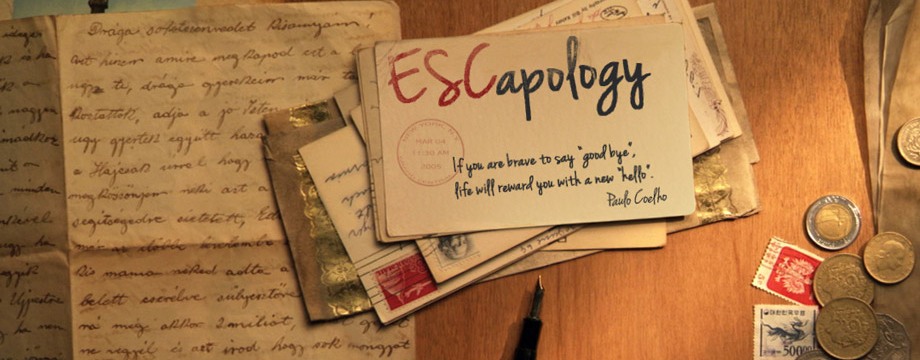

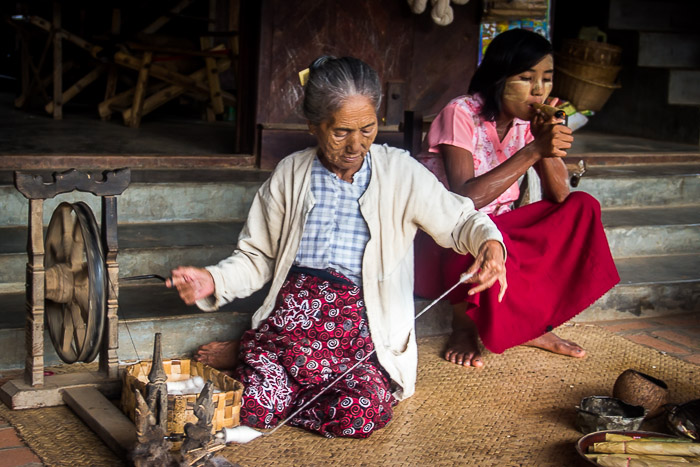
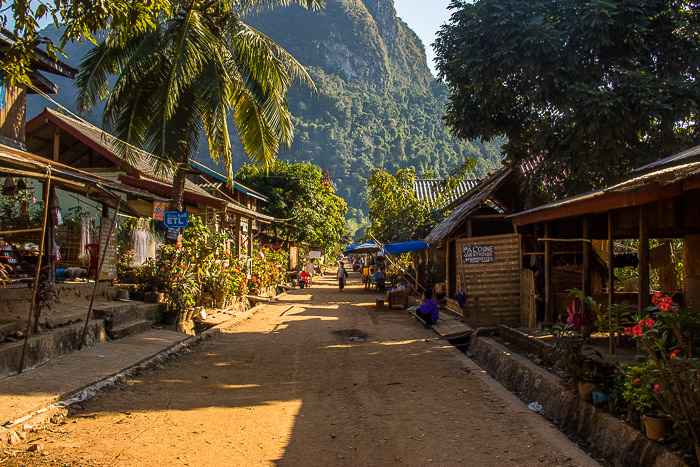
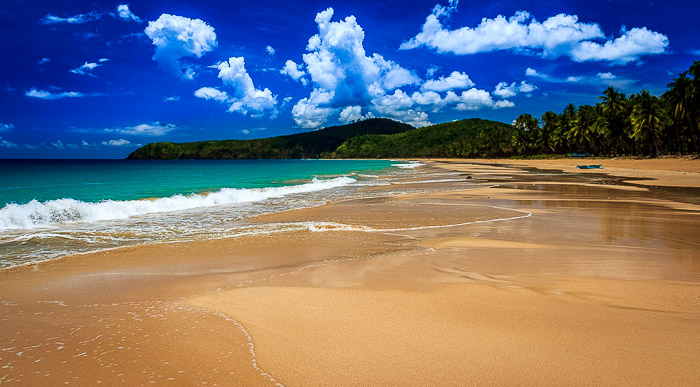
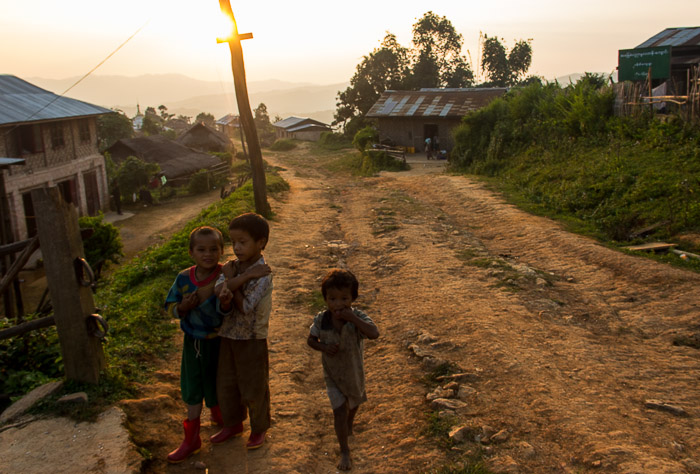
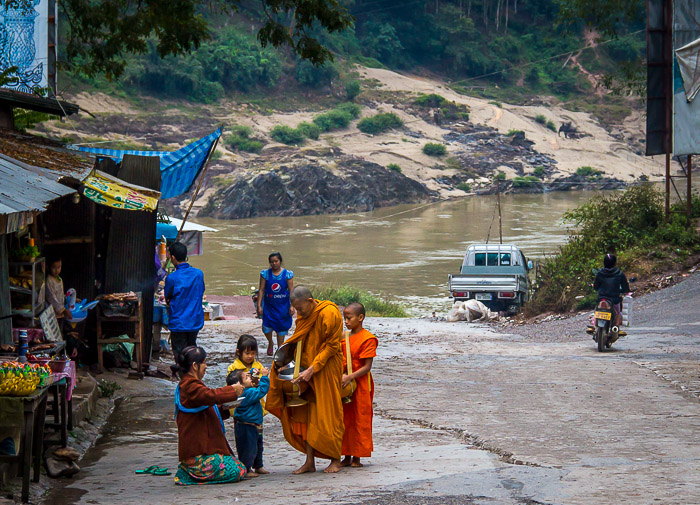











Nice post! As you said the answer to this “paradox” is very personal. I personally love discovering hidden places that are more off the beaten track and, even if I wouldn’t like them to became super popular and spoiled by the mass tourism, at the same time I do like to share them to who I know would enjoy them as much as I did.
Hi France, good to hear from and thanks for stopping by. The way you handle it I also used to deal with it. maybe I will become a bit more cautious about some things but I guess I will also still share my experiences. But it’s great to hear that you are also into off the beaten track travel. That, in my opinion, is the real thing. Where will you be headed next? Cheers, Philipp
Hi Pipoy! With my recent travels to The Cordillera Mountains, Laoag, El Nido, Palawan and Manila , I was so overjoyed and I detailed some of my experiences in FB and friends call me about them. I am for sharing travel experiences as I know it helps other people plan theirs. To answer your dilemma, for me as I see it, it’s not a question of WILL IT become another crowded tourist spot but rather, WHEN will it become one? It’s a matter of time. We don’t have control of the changes nor improvements of these beautiful unbeaten places but as you stated if you won’t do it another traveler will share theirs . Good example is Naspac Beach in Palawan. It’s just a matter of time; the beach have all been sold out and soon travelers like you won’t even have a chance to set foot in it. The idea is to see them BEFORE it gets developed, at least you’ve seen the beauty of what it was then!
Yeah, I guess you are right. It’s a vanishing beauty and we need to see it before it’s gone and consumed by mass tourism. As sad as it is. In the end, it is always all about the money … it dictates everything and it transforms these places. Not much to do about it. But glad to hear you got to tour the country a little bit and saw the North. That is something I still need to do. Actually I had planned to do an extended motorbike tour all the way up to Pagudpud, then over to the east and back via Mountain Province taking the Hanselma highway. But I guess it won’t push through very soon. A trip like that can’t be rushed … it needs time. Oh well, one day… What’s your next destination
Yes, nobody can protect the Philippines, especially not Filipinos. Its a poor country, but extremely materialistic. They want tourists badly to compete to the other ASEAN countries. The more tourists, the better. But they dont want the backpackers, they want the mass of Koreans, Japanese, Chinese and some of the loved US. They bring big money. And for their needs big 500 bed hotels with big resorts will be built. Jollibee, McDonalds, Dimsum and all others will follow. The Airlines will be happy to get a lot of new passengers.
Filipinos in these islands can make a fortune to sell all their lots, building european styled houses and buy big SUVs… Corruption will lead the money in the pockets of local politicians…
Worldwide i see a development in all countries. Lonely planet (what a strange name) will publish the SECRETS to their readers, Backpackers come and give the grace and admiration, then the big holiday industry knows, that these places bring big money…
In germany we have strong groups, also politicals who meanwhile try to declare places as sanctuaries, in the US is it the same. Look at all natural parks there… They protect… In China people exploit and misuse any property for making money, inclusive all the smog infested cities… They have no protection for the natural wealth. 300 Million Midclase Chinese are on the future look for holiday places. The philippines is perfect situated. And they learned what westerners like, must be good. See Boracay..
And Palawan WILL be the next Boracay… Then maybe also the Russians will follow, like in Thailand..
Ok, so where in the future travelers will go to find hidden places ??? oh, yes, there is the Antarctis…
Endless places, pure healthy white snow…and ice… No need for a fridge. Houses built out of ice blocks, perfect…..
Sorry for my critical words here. I live long time now in the phils. I was in many other ASEAN countries and also in Southamerica, when i was younger and eager to see all the world… like all of my generation. I see the commercials of all groups “Save the planet” . but the only thing that counts is MONEY, MONEY, MONEY… hahaha…
Hi Ernest,
sadly money corrupts everything and in a lot of countries you can witness these developments. It is funny that you mention Chinese and Russian. I came across hords of Chinese in Laos during Chinese New Year which I didn’t know about. It was insane and prices for everything rose immediately. They were basically taking over the country. Never seen anything like this. I actually wrote about it in one of my posts on Laos. And then the Russians. I have been to places in Thailand and Vietnam where everything is Russian already. The local people that at first rubbed their hands with dollar signs in their eyes were by that time already regretting this development and complained a lot about it. That’s why tourism has to be managed sustainably but that is just a naive thought since money will always be in the way. I guess all we can do is enjoy the nice places as they last and deliberately decide if we want to speeden up the process of exploitation by spreading the word or keep quiet about them. I think that’s it. And yeah, I would really hate to see Palawan turn into the next Boracay although I have not even been there yet.
Hi Philipp! This is a great post. You raised hard questions that I wish more travel bloggers would put out there on their own social pages to provide avenues of discussion among other world travelers. Traveling is not only a personal experience but a social one as well. To interact with nature means to interact with the people too right?
Your post reminded me of a report I came across years ago of how the farming and fishing community in the Philippines have dwindled in number over the years. Farmers and fishermen work hard to give their kids an education in the hopes that their kids will go to the cities and get office jobs and help the family lead better lives, which means earning enough money so Papa can stop working in the farm or stop fishing. The educated kids don’t want to take up farming or fishing; they aim for office jobs, as farming and fishing are considered laborious. Education has made it possible for these families to lead better lives, but at the expense of small scale fishing and farming communities. (Now though I think the situation may be different already.)
But my point is, you’re right, any progress will always have a good and bad attached to it. With the creation of roads is access to education and health services, yet with it also comes the spread of diseases and commercialization. Do we then not create the roads because we don’t want the negative side effects to happen? On the Other hand, is the lack of roads really a bad thing?
I know a couple of marvelous spots in my hometown that I don’t share about on my social media pages for fear that pretty soon too many people will discover it. I feel the same way about Siquijor, I love its rawness and unspoilt beauty, an island in the cusp of full bloom. Yet with the construction of new resorts, new public transportations… To quote the Field of Dreams “If you build it, they will come.” Personally, I will try to keep a secret some of these places as much as I can. Call me selfish (and maybe even irresponsible given the nature of my job haha) but some places are just too darn good to write about.
We do need smart development and for local leaders to find that tricky balance between progress and sustainable development. In other words, we need smart leaders who can look at places like Boacay and learn from its “mistakes.”
There was one comment here about how we don’t want the backpackers. That’s not altogether true. In an event 2 years ago that I happened to attend, Philippine Department of Tourism Assistant Sec. Bong Bengzon said their new ItsMoreFun tourism campaign focuses on backpackers, tourists who want authentic philippine experience as they have found out that more and more tourists visiting the Philippines are
Staying away from the big cities like Cebu and Manila. These tourists see a lot of the malls and the hotels and the tall buildings in their own countries already so they’re seeking a different kind of adventure in coming to the Philippines.
I know this is too long already haha and I hope I’m making sense after all!
Hi Rachelle,
this is a very interesting post of you and shows your responsibility about your country. And yes, many kids, once they can visit the colleges, never return to live in their provinces. mostly they end up abroad as OFW because they find no job here or only bad paid ones.
In regard of backpackers. I live in Cebu City and i know some resort owners. They want to maximize their profits for their sometimes overprized resorts. Koreans and Japanese are the ones who pay it. More and more hotels appreciate the strong spending and see backpackers as kuripots. Sad but the reality.
I personal dont like Koreans. Their attituds toward filipinos is often negative, as they think they are superior to them. And people like this in Palawan or Siquijor is a nightmare for me.
Hi Ernest! I often hear that same feedback about the Koreans. I don’t get to be around them much, but I guess there must be some truth to this.
As for the overprized resorts, that’s too bad about them but it’s the reality I guess. Money talks. I’ve also always wondered about how some resorts charge different rates for locals (Pinoys) and another rate for foreigners. That seems kind of discriminatory in a way, doesn’t it? Why charge different fees based on race? Or maybe there’s some sense to it that I’m not seeing?
Well, it’s not based on race but more on the perception of wealth. Of course this doesn’t make it better in any way. I can understand that public attractions, for example museums, natural attractions and so on charge foreigerns a bit more. It is to enable the poorer local population to also enjoy these things which the otherwise maybe couldn’t do it. But for a hotel which is only profit oriented this is not acceptable.
Hi Rachelle,
thanks for your thoughtful input. I think you are right, that the country needs local leaders who find the balance between development and sustainability. But maybe that is too much to ask for, I don’t know. Let’s hope for the best.
The good thing is, that there will still be places untouched and beautiful, sometimes just minutes away from these spoilt tourist hotspots. Why? Because most tourists don’t bother to go exploring. They stick to their guidebooks and that’s it. Stupid if you think about it but good in the way that it leaves the hidden gems to the few that really appreciate them. Like the places you mentioned in Negros. By the way, someday I will need to see them and I promise I wont write about. Could imagine posting a mystery article with pictures only…it would drive people nuts.
The issue with the decline of farming and fishing is a very complex I think. Why do people want to send their kids away? Is it because they really need more money or because society conveyes the image that labour is bad and big city life the thing to do? Sometimes I think, the people that live a simple life are much happier than most people and especially the ones living in the city. Japan, one of the most developed countries in the world, has a huge problem with depressive disorders and burnout. Can this be observed in rural, agricultural communities? I don’t think so. But yeah, too much for this little blog here. You know what I mean, at least I hope so.
OK I better go. Catch you later Rachelle. Hope Cebu is gonna work out next month…. Phil
Hi again. Haven’t read you for a while.
My take: Progress is not good or bad per se. It depends on who’s in charge. Unfortunately, it is often the corrupt and uncaring government who is in charge. They only think of the instant benefits, but not of the long-term effects on the people and the environment. If they just plan things well and put the priority on nature, things will work out eventually, for everyone’s benefit.
The government does not care much for the people’s welfare, but only for what places can offer tourism-wise. The people, in turn, just do what they deem is best, even if it isn’t the best at all. I have heard stories of Filipinos selling their lands to private people, mostly foreigners. So, many tourist spots here aren’t even owned by Filipinos now. Some tourism that is. The bad thing is we are even considered as second-class citizens. I know of a professional photographer who got irritated by his foreign client. The client asked him to do shots of his resort. The models were all foreigners as well, if my memory serves me right. The client got the rights to the property by marrying a Filipina. I forgot what they were talking about exactly, but the client told the photographer he didn’t want Filipinos in his resort…What?!!!
This is so saddening…
Hi J. Gi,
you are right, government policies is usually not about long term developments or sustainability but rather have the scope of the duration of the term they are elected for. After telection is before the election so to say. And that’s pretty sad.
The story you tell about the foreigner owning the hotel is of course a bad example. But I reckon there are also enough examples of rich Filipinos, the so called Elite, who bought properties from the locals and with that just increase their wealth. I even witnessed a lot of well off Filipinos treating their less fortunate countrymen who have service jobs like second class people. It seems to be appropriate for some reason. But no mater what, all of these developments of course are everything but sustainable und unjust but at this time I don’t know what to do about it …. and nobody should regard others as second class citizens, no matter if foreigner, local, tourist or what not.
Yes, of course, I am not discounting those “elite” Filipinos and I abhor them just as much, if not even more.
I guess it’s not a matter of race or where the person is from but rather a matter of the state of mind ….
You make some great points. I have a post about Kuta Bali vs Kuta Lombok coming out tomorrow where I talk about similar things but in a less eloquent manner. 🙂 The more we travel, the more the world is homogenized. It is great for people to get more money and health care and all that, so in the end travel is probably a net good thing. But there are problems with prostitution, pollution, development, etc, that tourism sometimes brings. I think tourism can be done in a tasteful way, that doesn’t ruin the local environment, but it is up to both travelers and the locals to ensure that it is done sustainably.
Great post!
Hi Jeff,
i see your nice Photo and i think its greece, right ? I was at least 15 times in my life in greece. The first time in 1974. A real paradise. Compared to today, few tourists. Wonderful mostly empty beaches. The palmbeach in VAI, Crete, wonderful. Matala the ancient place with all the caves mostly full of american vietnam war escapees. As backpackers we felt like BIG family. Islands like Serifos, Santorini were precious marbles….
My last visit in 2004 all has changed. I swore it will be the final visit. Mass tourism, overcrowded beaches, destroyed landscapes and full overpriced tourist places. Mercedes taxis everywhere, the greek local population got rich, i was thinking… I was wrong….Locals told me, It was money from the rich in Athens, who built hotels, expensive restaurants, beach lots… and..and.. the locals were often betrayed and sold all cheap….. Yes, there were now more doctors…. for the wealthy tourists… poor farmers could not afford the fees….
Tourists see only their 2,3 or 4 weeks of holidays. What happens after, who cares…..
Same here in the philippines…. The rich families from Manila make the music and the money… the locals act as cheap employees, often dont earn the minimum wages… Cheap health care… forget it. When you have money you stay healthy, if you are poor, you die… I payed enough doctor bills of poor filipinos….
Rich asian people never share their wealth with poor locals… The countries are corrupt and the governments are doing what rich people want….. its sad, but the actual reality….
Hi Jeff, funny you talk about the two Kutas. There are big changes going on in Kuta Lombok, big time investores buying land, planning to build upscale resorts. This place might turn into the next Kuta, Bali if the people haven’t learnt. Especially since Bali is getting so crowded that tourists as well as investors are looking for alternatives. Locals can unfortunately steer these development to a certain degree. They usually don’t have the power or influence to act against investors and officials. The only thing that might allow for a sustainable development is a firm and appropriate policy by the government…but yeah, that might be too much to ask for…
Hello Philipp. This is indeed a very good and bold article you’ve written. My deep respect for that and i could imagine how difficult for you to write this. It is a heavy and delicate issue, a topic that will surely spark heated arguments in a tourism and sociology classes. I think personally it boils down to one word : CHANGE. Travelling and tourism bring with themselves change, either good or bad. Good consequences such as infrastructures, medical health, employment, improvement of facilities; and bad consequences such as exploitation and worse, disappearance of natural resources, pollution, massa tourism, prostitution nad also the ever present graft and corruption. In Europe, tourism is promoted but the nature/park/beaches are also protected; in SEA, Philippines in particular, the government is active in promoting the country thru its It’s More Fun in hte Phils campaign, but the natural environment is not protected at all. On the contrary, beaches or properties at seaside, islands and even mountains are being sold to those who can afford it (like some rich Filipinos, govt officials and even foreigners) and are converted to resorts and hotels! There is just no proper regulation about this matter. For travellers who share their experiences of finding some hidden places to others via social media, it’s not their fault. I do the same also because i want to share what I see and experience. It is just too sad; there are lots of “hidden places”where we used to go when we were young that are now converted into private beach resorts or attractions and now we have to pay entrance fees to see or enter them. It is just ridiculous!!! Travelling is a good thing, for sure it is. Tourism is also a good thing. There must just be a good and strict regulations about it. We can not prevent Change! It is good, as long as it is for the better. But sadly, that is not always the case.
I can go on and on, but i think i will be just rumbling on. Again, my respect for this. You show you’re a responsible traveller and a good travel writer/blogger. Who would have thought that you’ve come up with this kind of write up?
“Great minds discuss about ideas; average minds discuss about events; small minds discuss about people.”You have a great mind!!!
A question I constantly struggle with. On one hand visiting impoverished places where the people wear traditional clothes, live in huts, and subsist off the land offer the most genuine experiences and the best photography opportunities. But those people have a right to paved roads, 24 hour electricity, good schools, and economic opportunities too. I think the only solution is to accept that they will change, and to visit them before they do.
Hi Terry, of course no one should be denied the chance to advance and for a better life. The thing I sometimes wonder though is, will these things, paved roads, electricity and economic opportunities, really better their lives? Are their lives so bad or will they trade it in maybe for something that’s worse in the end? But yeah, the persepctive of the people directly affected is different from that of an outsider like us. In any case, it’s not an easy topic and I appreciate you sharing your thoughts. Cheers Terry..take it easy
Hi Phil,
I’ve again been away for quite a while; seasonal affective disorder and other things have kept me away from my own blog as well, but I think I’m getting back in the mood now, and definitely wanted to catch up on reading ESCapology. I think posts like this one can help steer travel in the right direction. It’s all about the attitude we have toward the places we’re visiting — we should walk softly, so to speak, pay attention to local rules and traditions, and just be respectful overall. Maybe I’m naive, but I don’t think that’s too much to ask of the travel industry. Even a popular guide book like Lonely Planet is taking notice; the Australia guide makes sure to discuss the local indigenous people and encourages travelers to respect their wishes — for example, by not touching or climbing Uluru (a.k.a. Ayers Rock). Personally, I think the Australian government should outright ban these behaviors, rather than just leaving it to visitors’ discretion.
Basically, it’s about remembering that you are a visitor, and are not entitled to go wherever you want and do whatever you want there, even if the official government policies don’t ban certain things. And as long as travel writers keep encouraging the visitor attitude rather than the tourist attitude, we can steer the travel industry toward more respectful and sustainable practices. Again, maybe some will consider me naive, but I think that believing things can change for the better makes it more likely that they will.
Hi Nerija, long time no see and welcome to ESCapology. What’s seasonal affective disorder then? Whatever it is, glad you are over it.
If my article can help steering tourism in the right direction,that would be a great thing and I couldn’t ask for more. What you say is definitely right. We should travel and be responsible and respectful. That can make a huge difference. It is funny you mention Uluru because I have been there and saw what was going on. For some reason, the majority of people climbing the rock are Japanese. They just want to get their picture taken on top. The fact that it is not officially banned is rather complex. First of all, Uluru or beter the ground it is located on, is not really Australian but owned and governed by the Aboriginal people. In the culture of the Aboriginal people there is no such thing as a ban or forbidding something. All they can do, is urge people not to do it, that’s it. It’s in their culture. Having that in mind, it makes the factthat some people still climb it even more outrageous. People can be really stupid but what can you do.
Anyhow, let’s hope that you are right and that things can be done right. I am usually more on the negative side but I would love to get proven wrong. Cheers Nerija, take care and hopefully it won’t be for another few months before I hear from you again 😉
Hey Phil, thanks for sharing these thoughts – it’s awesome to know I’m not alone in pondering these issues! My husband shared your post with me today as I’ve just recently been wrestling with similar issues on my blog. It’s not often that I come across other blogs writing about similar issues so I’m glad to find yours.
I’m a humanitarian worker, currently living in the Philippines (working on the typhoon Haiyan response) and I do a lot of travel for work as well as for fun. I love experiencing other cultures through travel and learning so much through these experiences, which I think make me a better and more grounded human, but I really struggle with the often negative impacts of travel. There are so many examples I have come across where tourism has let to exploitation of the environment or women and children. Which deeply concerns me, as it does you and the other readers.
However, I’m also convinced tourism CAN be super beneficial for local communities if its done right. And I also think that we as tourists have the power to dictate what that impact is for local communities. If we can learn what it is that makes tourism most beneficial for local communities, then we can start to demand this from the tourist services we use. And we should do the opposite for those things that make the impacts of tourism more negative. The more of us who do this, the more positive the tourism sector will become. Tourism companies provide what travellers like you and me demand. For example I think we should try to avoid companies that have a large monopoly over the market and are owned by foreigners – because they don’t have to be accountable or share the benefits with the local community. Instead we should choose to stay at smaller scale eco guesthouses and services whenever possible that put money in the hands of local families and support the local economy. Its about having our eyes wide open and making conscious choices as a traveller. Its about respecting local communities as our highest priority.
I also think we should avoid thinking that we are looking after communities by preventing them from accessing more cash because we worry they might choose to spend it on booze or consumerism etc rather than their children’s schooling. I find myself wondering about this too, but I’ve come to realise that it’s not for us to be paternalistic and to think we know better about what families could spend their money on. This can lead to dangerous ideas about controlling community behaviour (for those of us who work in the aid/ humanitarian sector). What comforts me is that there is some research out there which shows that families actually make really good choices with their money when they are given extra cash, which is really encouraging – see givedirectly.com.
So I’m definitely a believer that when we come across sustainable, eco-style tourism services we should encourage, supported, and promote, rather than hide them.
I’m not an expert on this stuff but I really want to learn more about it. I’ve found some good resources out there if any one is interested to learn more about how to be a socially conscious tourist – like the guide from Endeva on inclusive business in tourism (I’ll paste link below).
You can also check out my blog if your interested http://www.friendsoftheweather.com (forgive me for the plug).
Please keep writing about these issues – debate and awareness is half the battle!
http://www.endeva.org/fileadmin/user_upload/publications/Tourism/Endeva-GIZ_DestinationMutualBenefit.pdf
Hi rachel, thanks a lot for taking the time to read my post on this touchy issue and your thorough feedback. I’m glad tat there are other people out there who are concerned with things like that. It seems like you have been thinking about it for quite some time. You make a lot of goodpoints and I also believe that sustainable torism, beneficial for the local communities, can be done. It just needs committment from different stakeholders so to say. Let’s hope that it can be done for some of the places in Southeast Asia which are concerned right now. I would love to see a good, healthy and sustainable development. I am hoping for the best.
Are you actually working in a related field? Thanks again Rachel, I really appreciate it. All the best, Philipp
Hi Rachel,
you are very right about your ideas of a responsible Tourism. And i am sure
that western visitors would like to follow to a Eco Tourism….
Unfortunately western visitors are a minor Group in the phils. As you and i can see it day by day, Visitors of Korea, Japan and Chinese are the majority amount of visitors and every year the numbers are rising. These groups are not interested in ECO Tourism, they simply dont know what that is…. They want a spectacular holiday at low costs but with the adaption of their own culture….
That means korean, japanese and chinese restaurants everywhere, also the fastfood chaines… So imagine Palawan or the Visayas with eastern business owners who are really interested only in their invests and profits. You can see this development very good in Cebu City, the so called pearl of the south. There is momently a big buyout of lots and properties by chinese owned Companies for future developments. The customers are OFW and eastern wealthy tourists. We western visitors have only a little meaning for the big business here.
Funny is, that Abu Sayaf and its rebel actions in Mindanao keep the eastern tourism away from there, as they are very, very afraid of kidnappings and bombings. Shall we be grateful for that….;-)
So Mindanao has the most natural landscape right now and some very nice ECO tourism places, thanks to muslim rebels…
Here some actual Tourist News about Phil. Islands and Tourism Plans.
So the future brings a lot of money and Chinese Tourists…
Newspaper Article in the BusinessMirror of the Philippines….
ILOILO CITY—Images of the world’s 24/7 island, Boracay Island, covered the Metro Line 2 of Beijing Transport Metro, invading the railway transport of Beijing, China.
Boracay, Bohol and Palawan were featured in a roving visual gallery, delightfully surprising the commuters.
The interiors of Beijing’s Metro Line 2 train also carried the train-wrap images in posters, while the island-destination names were greatly emphasized on the train doors. The tropical images set as a reminder for the tourists on what are the ideal holiday choices for the Spring Festival this 2015.
“This is another benchmark in the tourism campaign of the Department of Tourism [DOT] promoting the different tourist destinations in the country. China remains one of the top foreign tourist markets of Western Visayas. We want to further strengthen Region 6’s position in this huge tourist market, which currently occupies the No. 2 spot in terms of foreign tourist arrivals for the last three consecutive years,” DOT Region 6 Director Helen J. Catalbas said.
The train-wrap project is scheduled to run for a month, and is a consumer-promotional effort of the Philippine DOT Beijing Office and the Tourism Promotions Board.
Wow, that will definitely be a huge pull for Chinese tourists …. let’s see how this turns out.
I’ve been thinking about this a lot, and I don’t have an answer. I don’t want to stop travelling, and off-the-beaten track is the best form of travel, but as you said, once you arrive, you change a place. Maybe it’s selfish to want to keep returning… I don’t know.
Yeah, it is sort of a dilemma. I think we should just go on but keep these things in our minds. Traveling consciously and maybe without telling too many people about the gems we discovered. What do you think?